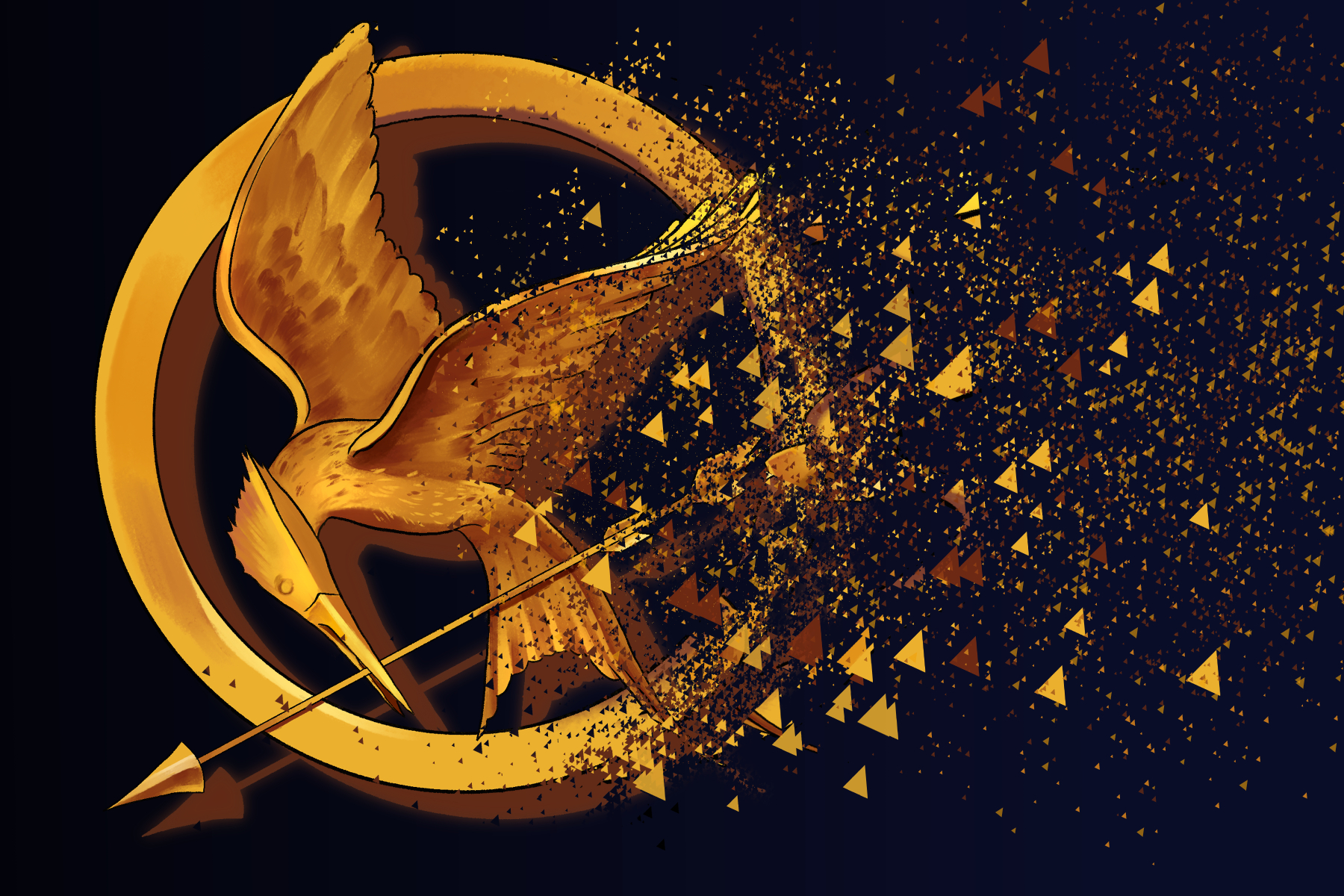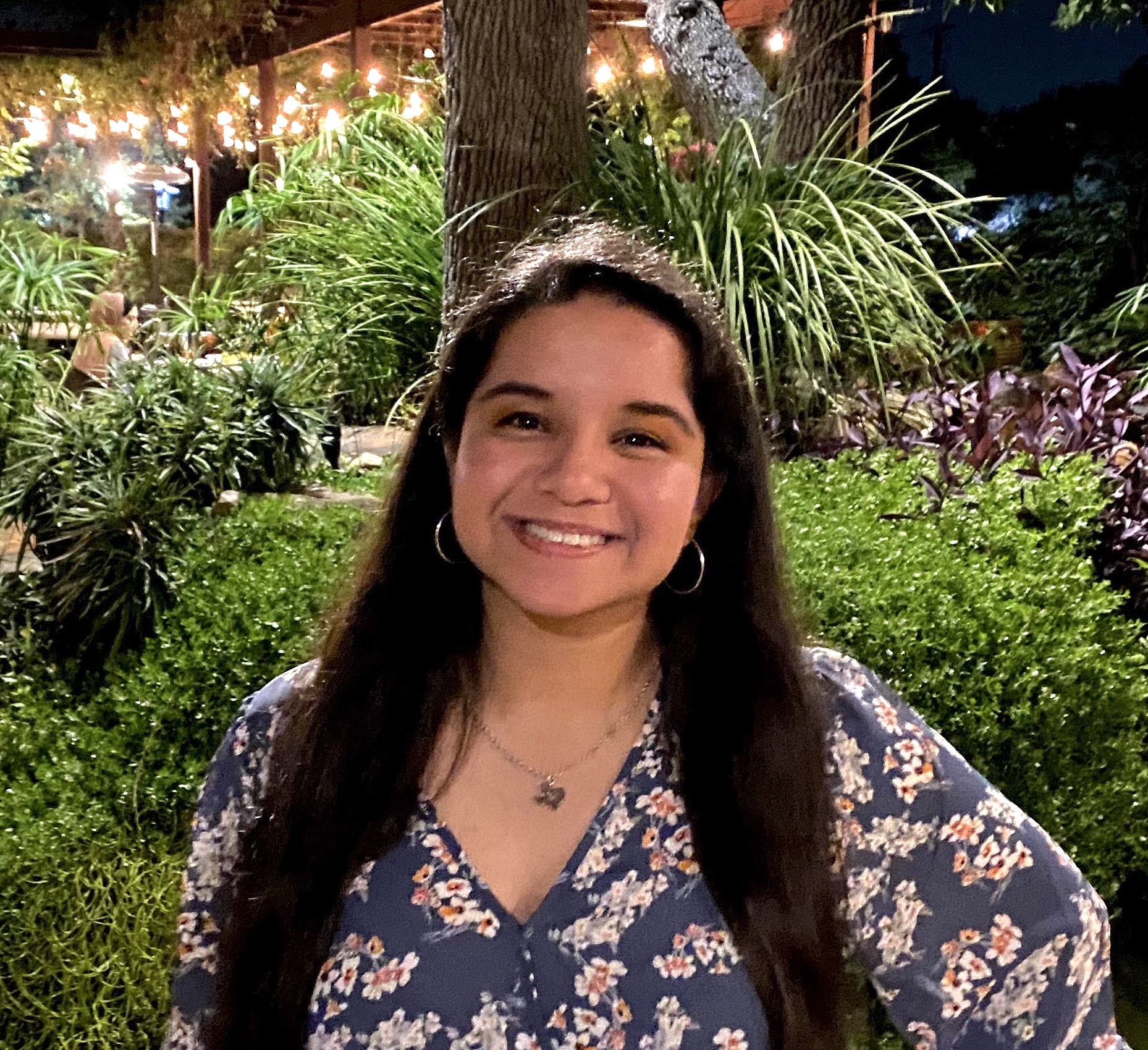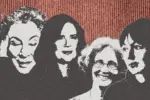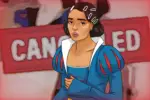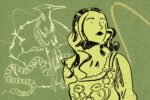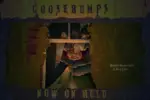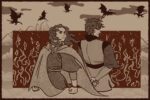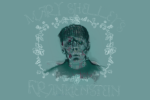For several years, young adult book series such as “The Hunger Games” and “Divergent” saw immense popularity, on the shelf and the screen. Shortly after the most popular dystopian series were complete, though, the genre slipped behind the likes of other kinds of series and has not seen the same kind of popularity since. Is the public’s interest in young adult dystopian novels disappearing, or will it simply take on a new form?
What is dystopian fiction?
Dystopian fiction is a form of speculative science fiction that serves as a response to utopian fiction. While a utopia is an imagined perfect society in which social, political and moral issues are relatively nonexistent, a dystopia is a conceptualized society characterized by extreme social divides and human misery.
Works of dystopian literature or other forms of media can help its audience explore reasons they might be afraid of certain real-world concepts. In particular, many dystopian novels play with concepts of strict societal divisions, mass surveillance of citizens or post-apocalyptic events. Though these themes may seem like mere fabrication in the context of fiction literature, such themes can be viewed closer to reality upon further reflection. After all, technology is constantly improving, and every society has some sort of political and moral divide.
Many of the most impactful dystopian pieces often play with a troubling concept that already exists in our society, and will in turn heighten the stakes for the characters or escalate the amount of power reigning figures have in the characters’ world. For example, “The Hunger Games” puts its characters in a world of high economic inequality among harshly divided states, and explores an extreme idea of reality television, asking, “What if our society was in such disarray that the biggest hope citizens could find was in a reality show wherein almost every contestant dies, and the victor wins a life of safety and comfort?” Although no such reality TV show exists in today’s world, the trivialness with which the affluent upper class treats the disadvantaged Hunger Games contestants does ring familiar.
Dystopian fiction can also guide its audience through these “question” scenarios without forcing them to live them out and, let’s face it, we’re all relieved we don’t have to experience the Hunger Games in real life. Dystopian stories often serve as warnings to the audience, or “suggestions for course correction,” and can even open up some great conversations about how we view our world today. Dystopian novels are fascinating for most readers of any age, and recently, they’ve proven especially engaging for young readers.
Why are young adult dystopian novels so appealing?
Modern dystopian novels date back just over a century ago, one of the earliest works being Jack London’s “Iron Heel,” which was published in 1908. A bit later, many of the most popular and genre-defining dystopian novels were released to public acclaim, including George Orwell’s “1984” and Aldous Huxley’s “Brave New World.” But it wasn’t until around 20 years ago when dystopian fiction became extremely popular among young people.
“The Giver” by Lois Lowry was one of the earliest examples of dystopian fiction for young people back in 1993 and was particularly praised for its grip on topics such as civilian monitoring and societal sameness. Another early young adult dystopian influence was Scott Westerfeld’s “Uglies,” which takes place in a world where people have their faces surgically altered to become “pretty,” though the main character discovers the surgeries come with hidden consequences, such as illnesses or mind alterations. In the following years, YA dystopian fiction took the world of readers by storm, especially with the likes of “Matched,” “Divergent” and “The Hunger Games.”
As the genre often covers semi-realistic issues in otherwise outlandish scenarios, teens, in particular, seem to find young adult dystopian novels fascinating for a multitude of reasons. In an article from NPR, reporter Elissa Nadworny sought to figure out why YA dystopia is so appealing to young readers. “Teenagers see echoes of a world that they know,” said Jon Ostenson, who studies YA dystopian literature at Brigham Young University. “The hallmark of moving from childhood to adulthood is that you start to recognize that things aren’t black and white, and there’s a whole bunch of ethical grey areas out there.”
In the height of adolescence, teens go through many new experiences and emotions and often look for media in which they can see their fears and wonders projected into a world of fascinating characters. As adolescents transition into a new part of their lives, they may also be looking toward new and more mature genres to relate to. “When teenagers feel sad, what they often do is put themselves in situations where they feel even sadder,” psychologist Laurence Steinberg said in an interview. Nadworny added, “They listen to sad music, watch melodramatic TV shows [to cope with these emotions]. So dystopian novels fit right in, they have all that sadness plus big, emotional ideas: justice, fairness, loyalty and mortality.”
Of course, teens aren’t the only people reading young adult dystopian novels. Even adults can likely relate to lonely teens in a world where they understand why a supposedly functional society needs to change for the better.
Dystopian Potential
While many hit young adult dystopian novels were released following Suzanne Collins’ “The Hunger Games,” such as “Divergent” by Veronica Roth or “Legend” by Marie Lu, the dystopian surge has since died down. Despite the fact that dystopian YA has not been the same since the early 2010s, the genre is still successful today. However, new young adult dystopian novels now have to follow new expectations.
Just as any children’s fantasy author now has to avoid writing a plot too similar to that of everyone’s favorite boy wizard, dystopian YA novels must avoid concepts similar to their predecessors. Many early YA dystopian plots explored themes of “selection” or “specialness,” revealing one character who was either born to change everything about their society, or who later set out to do so. “The Selection” by Kiera Cass is a great example of this common theme, as are the previously mentioned novels. Though the trope of “one person to change the dismantled society” can be fun, perhaps it led to a tired sameness within the genre.
Thankfully, later dystopian YA novels have moved past this commonality. More recent YA successes have focused on newer topics, such as reality-altering video games in “Warcross” by Marie Lu or elements of futuristic superhero justice in “Renegades” by Marissa Meyer. Other hit books include “Scythe” by Neal Shusterman, in which selected citizens are trained as scythes to control population size and are the only people who can end a person’s life, and “Cinderella Is Dead” by Kalynn Baron, a fairytale retelling in which girls must attend a ball in order to find a husband, and they disappear if not chosen by one of the eligible bachelors.
Exploring New Worlds
In YA dystopia, there are really no happy endings, especially not in the way we’ve come to expect from books of fantasy and romance. Instead, young adult dystopian novels hone in on the choices and consequences of their characters, as well as the choices of their societies. Unlike what we might find in other YA genres, these choices and consequences often reflect what society is going through in an almost eerie way, a way in which teens are forced to think about their actions concerning their generation’s future.
Ultimately, it seems as though young adult dystopian novels are as ever-changing and relevant as the fears of those who read them. Although they may not be as popular as they once were, the genre itself is still thriving. As long as our society’s future remains unsure, and teens continue to desire a closer look at societal morals through the fiction about the near-distant future, YA dystopian novels will likely remain a staple of children’s literature.


